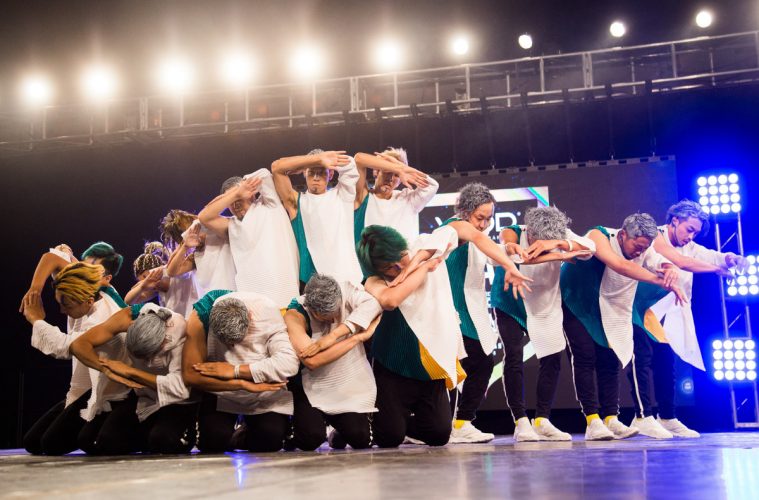Countless hours in the studio, rehearsals till late in the night, and training for physical feats is just part of the prep that gets a dance crew to the stage. But, when it comes down to it, physical prep will only get you so far as a performance group. Learn the importance of performance psychology and how you can tap into it to take your performance to the next level.
We were lucky enough to learn from Clay Frost, whose expertise has helped countless athletes control their mental performance. Read the following five mental skills to set you on the right path of mastering your mental game.
“Once you understand these mental skills, you will be prepared to start training your mind in a way that will lead to unshakable confidence in yourself and your training, high levels of consistent motivation, a laser-like focus on what needs to be done, and overall better performances,” Frost says.
Get True Emotional Control
Before you can ever control your performances, you have to be able to control your emotions. Emotions, if not kept in check, hijack our ability to be creative, deteriorate our attitude, destroy communication skills, and cause us to burst like a pipe under pressure. Controlling our emotions will also keep us firmly planted in the process of getting better instead of comparing ourselves and our teams to others.
Anytime you realize that your emotions are starting to hijack your performance, you have bring your focus back to something simple, to stop the downward spiral and get you moving in the correct direction. Techniques like deep breathing can break the rhythm of whatever is hijacking your emotions and will give you the chance to reset your focus to whatever will lead you to produce results.
Learn to Focus the Right Way
There are two main concepts when it comes to focus: direction and intensity. Are you focusing on the right things at the right time? This is direction. With what percentage of your ability to focus are you focusing on those things? This is intensity. It means nothing if you are 100% focused, if you are focused on the wrong thing; nor will it mean anything if you are 50% focused on nailing the routine, technique, or skill you’ve been working on for the past year. It is finding balance between direction and intensity that will help you learn faster and perform at a higher level.
Focus and emotional control affect each other massively. If your focus in on the wrong things, frustration can flood in, if you focus on the correct things, training sessions and performances go much smoother.
Talk to Yourself the Right Way
Ask yourself if your thoughts are productive. This is such a simple idea but it really is transformative. When you start asking yourself if your thoughts are productive you can then decide for yourself if you are headed in the right direction or if you need to do something about it. This is a very deliberate activity and will require a lot of mental effort. During your next training session, ask yourself, “Was that thought productive to the outcomes that I want today?” If the answer isn’t “Heck yes!”, then you’ve got to change the thought to make it as productive as possible.
Harness Powerful Mental Imagery
Imagery is the creation or recreation of an event in the mind. Either you are creating a future event or recreating a past event with you imagination. Imagery has two main concepts, control and reality. To make your imagery controlled, we need to make sure that we are seeing what we intend to see. We need to see our ideal performance. To make imagery real, we need to use all of our senses in order to make it as lifelike as possible. The more real and controlled our imagery is, the more it will affect our performance.
Imagery can be used for nearly anything, it is best used to learn new routines, skills and techniques quickly and to master those same routines, skills and techniques. Increase the speed of learning and mastery as well as the ability to execute what you have been practicing.
Establish Productive Priming Routines
A priming routine is what you do just before you perform. A lot of times performers get themselves physically warm to do what they are going to do, they will go through various exercises that prepare their body to execute the skills they need to use. Unfortunately, performers rarely focus on the mental side of preparation. Having confidence in your physical warm-up will go a long way mentally, but there are specific things that we can do to prepare mentally both individually and as a dance crew.




